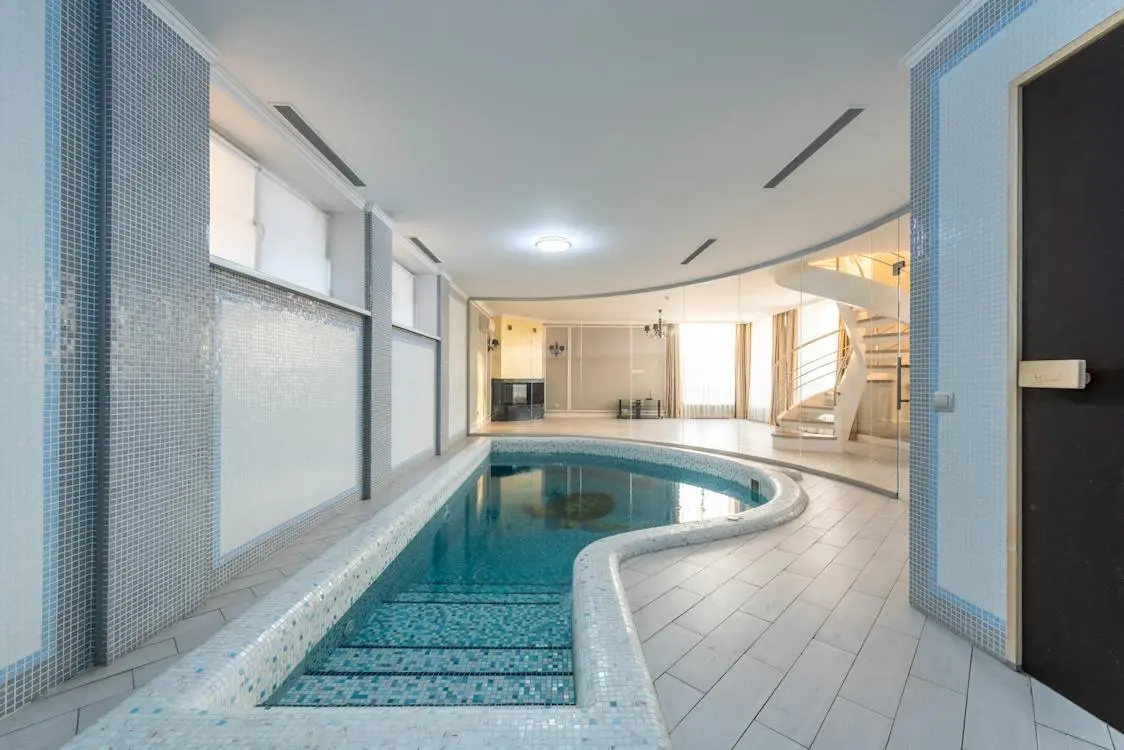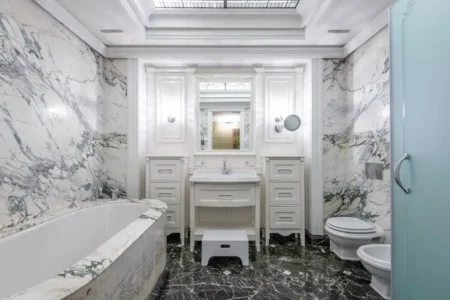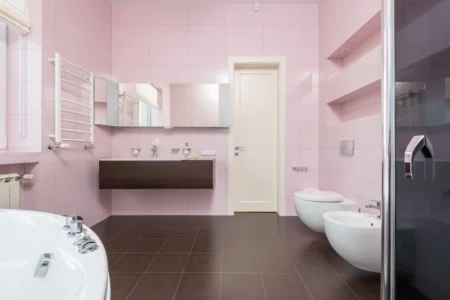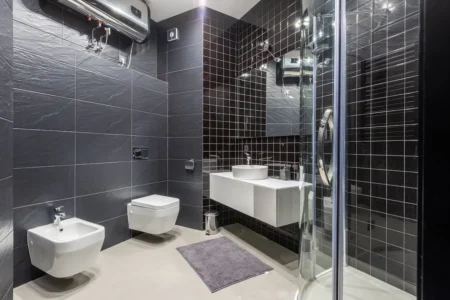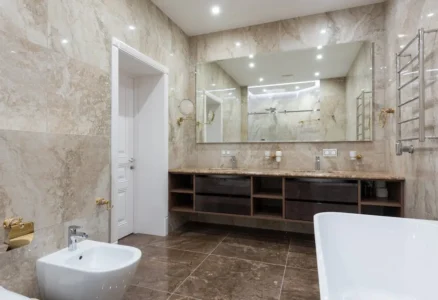When it comes to enhancing the aesthetic appeal of your pool, choosing the right tiles is a crucial decision. Porcelain tiles, known for their durability and versatility, have become a popular choice. However, the question remains: Can any porcelain tile be used in a pool? In this comprehensive guide, we’ll delve into the factors you need to consider, ensuring you make an informed decision for your pool project.
Understanding Porcelain Tiles
Porcelain tiles are composed of fine porcelain clay and other materials, making them dense, hard, and highly resistant to wear and tear. These characteristics make porcelain tiles an attractive option for various applications, including pool surfaces.
Pool Compatibility Factors
Water Absorption Rates
One critical factor in determining whether a porcelain tile is suitable for a pool is its water absorption rate. Porcelain tiles with low water absorption rates, typically less than 0.5%, are ideal for pool installations. This prevents the tiles from absorbing excess water, which could lead to cracks and other structural issues over time.
Slip Resistance
Safety around the pool area is paramount. Opt for porcelain tiles with a textured surface or a higher coefficient of friction to enhance slip resistance. This becomes especially important when the tiles are wet, ensuring a secure environment for you and your guests.
Chemical Resistance
Chlorine and other pool chemicals can impact the longevity of tiles. Choose porcelain tiles that demonstrate high resistance to chemicals commonly used in pools. This resistance will safeguard the tiles from discoloration or degradation over time.
Selecting the Right Porcelain Tile for Your Pool
PEI Rating
The Porcelain Enamel Institute (PEI) rating system categorizes tiles based on their durability. For pool areas, opt for tiles with a PEI rating of at least 3, ensuring they can withstand moderate to heavy traffic and resist abrasion.
Frost Resistance
If you reside in a region with freezing temperatures, selecting frost-resistant porcelain tiles is crucial. These tiles can endure temperature fluctuations without cracking, ensuring the longevity of your pool’s aesthetic appeal.
Tile Size and Thickness
Consider the size and thickness of the porcelain tiles. Larger tiles may require a flatter substrate, and thicker tiles can provide additional durability. Factor in your pool’s design and foot traffic to make an informed decision.
Installation Considerations
Substrate Preparation
Proper substrate preparation is key to a successful porcelain tile installation. Ensure that the pool’s surface is clean, level, and free from any debris. This sets the foundation for a long-lasting and visually appealing tile installation.
Grout and Adhesive Selection
Choose high-quality, waterproof grout and adhesive to prevent water infiltration. This is essential for maintaining the structural integrity of the tiles and preventing issues such as mold and mildew growth.
Maintenance Tips for Porcelain Pool Tiles
Regular Cleaning Routine
Maintain the beauty of your pool tiles by establishing a regular cleaning routine. Use a mild detergent and a soft brush to remove any dirt or debris. Avoid harsh chemicals that may compromise the tiles’ appearance.
Avoiding Abrasive Cleaners
While porcelain tiles are durable, abrasive cleaners can damage their surface. Opt for non-abrasive cleaners to preserve the tiles’ finish and ensure they remain visually appealing for years to come.
Conclusion
In conclusion, selecting porcelain tiles for your pool involves careful consideration of various factors, from water absorption rates to installation techniques. By adhering to these guidelines, you can ensure a visually stunning, durable, and safe pool surface that stands the test of time. Invest in quality porcelain tiles, follow proper installation procedures, and enjoy the beauty they bring to your aquatic oasis.
FAQs
Can any porcelain tile be used in a pool?
Not all porcelain tiles are suitable for pools. Choose tiles with low water absorption, high slip resistance, and chemical resistance for optimal performance.
How often should pool tiles be cleaned?
Regular cleaning, at least once a week, is recommended to prevent the buildup of dirt and grime on your porcelain pool tiles.
Are there specific patterns recommended for pool tiles?
While patterns depend on personal preference, consider lighter shades to maintain a cooler surface temperature around the pool.
Can you install porcelain tiles over an existing pool surface?
In most cases, yes. Ensure the existing surface is clean, level, and in good condition before installation.
What is the average lifespan of porcelain pool tiles?
With proper care and maintenance, porcelain pool tiles can last for decades, providing a durable and aesthetically pleasing surface.
